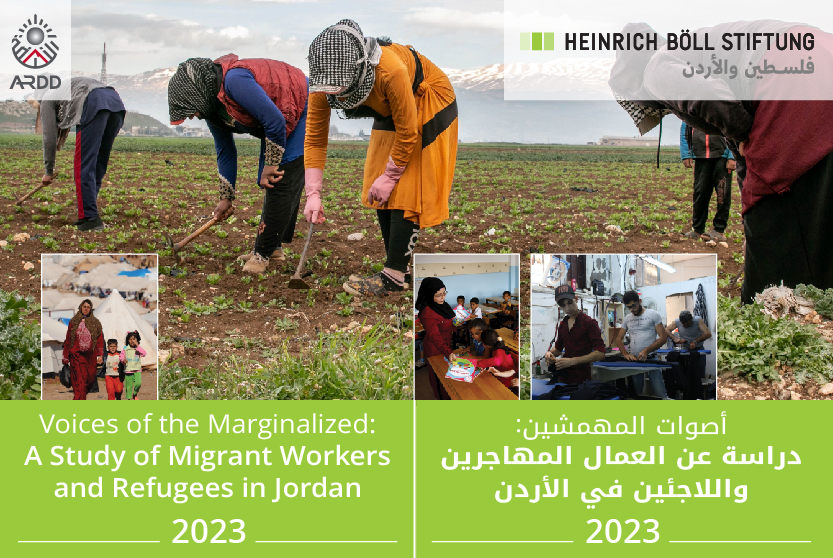This study provides an in-depth analysis of the challenges faced by migrant workers and refugees in Jordan, particularly in terms of access to work and education. It offers comprehensive recommendations for policy reform and future research directions. It also sheds light on the voices and stories of migrant workers and refugees that reflect their realities.
While Jordan has made progress in addressing the needs of migrant workers and refugees, significant challenges remain: Migrant workers and refugees in Jordan encounter significant discrimination, which hampers their access to work and educational opportunities. This includes legal barriers, wage disparities, and exclusion from certain job sectors; The kafala (sponsorship) system contributes to the exploitation and restricted mobility of migrant workers.
Despite significant changes in the legislative framework to facilitate access to education for migrant and refugee children, the process for enrolling in schools is still heavily impacted by their parent’s legal status, leading to low enrolment and completion rates.
The study suggests several recommendations including: advocating for an overhaul of the sponsorship (Kafala) system to protect migrant workers from exploitation and ensure their freedom of movement and employment; simplifying the permit process and allowing refugees and migrants to work in a wider range of sectors; implementing local educational programs, including language and vocational training, to improve access and integration for refugee children, and enhancing legal frameworks to combat discrimination and conducting awareness campaigns to reduce societal stigma.
In conclusion, comprehensive policy reforms and further research based on the direct engagement and inclusion of migrant workers and refugees in policymaking, are essential to ensure their successful integration and contribution to Jordanian society.
This publication has been produced as part of phase 3 of Haquna project, with the financial assistance of the Heinrich Böll Foundation – Palestine and Jordan. The views expressed herein are those of the author(s) and therefore do not necessarily reflect the opinion of the Heinrich Böll Foundation – Palestine and Jordan.”


